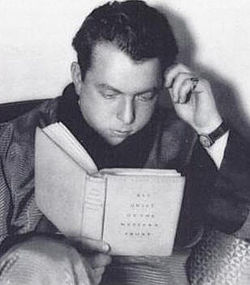- The full film of All Quiet on the Western Front , which won for Best Picture (then known as Outstanding Production) and for Best Directing
- The full film of The Love Parade , which was nominated for six awards but did not win any.
| 3rd Academy Awards | |
|---|---|
 | |
| Date | November 5, 1930 |
| Site | The Ambassador Hotel Los Angeles, California |
| Hosted by | Conrad Nagel |
| Highlights | |
| Best Picture | All Quiet on the Western Front |
| Most awards | All Quiet on the Western Front and The Big House (2) |
| Most nominations | The Love Parade (6) |
The 3rd Academy Awards were held on November 5, 1930, by the Academy of Motion Picture Arts and Sciences (AMPAS), awarding films released between August 1, 1929, and July 31, 1930. AMPAS decided to hold the awards in November to move them closer to the eligibility period; therefore, the ceremony took place only seven months after the 2nd Academy Awards, making 1930 the only year in which two Academy Awards ceremonies were held. This was the first ceremony to be voted on by the full membership, rather than by the small clique that voted at the previous two ceremonies. [1] The ceremony was held at the Ambassador Hotel, being attended by over 500 members of the Academy. [2]
Contents
All Quiet on the Western Front became the first film to win both Best Picture and Best Director, which would become common in later years. Lewis Milestone became the first person to win two Oscars, having won Best Director – Comedy at the 1st Academy Awards. The Love Parade received six nominations, the greatest number of any film to that point, but did not win in any category.
Best Sound Recording was introduced this year, making it the first new category since the inception of the Oscars. It was awarded to Douglas Shearer, brother of Best Actress winner Norma Shearer, making them the first sibling winners in Oscar history. Ruth Chatterton's performance in Sarah and Son , directed by Dorothy Arzner, was the first nominee from a female-directed film.
A portion of the awards were filmed for the first time: Universal Pictures co-founder and president Carl Laemmle winning Outstanding Production for All Quiet on the Western Front, given to him by Louis B. Mayer, vice president of Metro-Goldwyn-Mayer; Norma Shearer winning Best Actress for The Divorcee , and screenwriter Frances Marion winning Best Writing for The Big House . [3]




